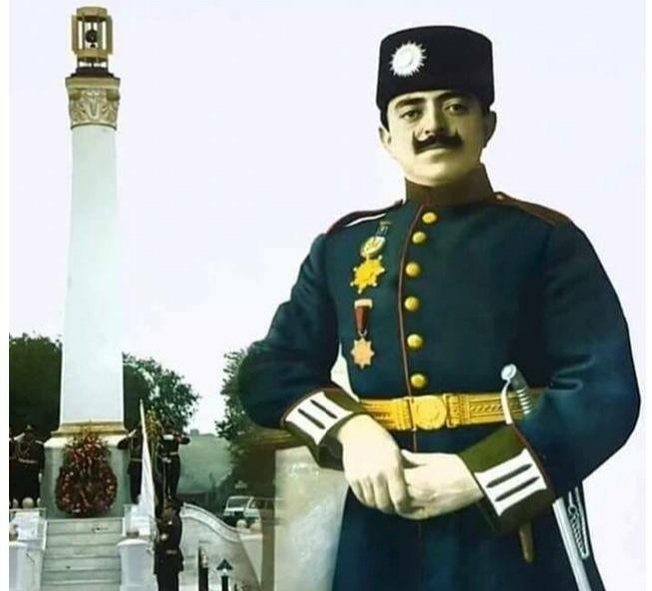For over a century, nationalism in Afghanistan or among the Pashtun community has wielded fanciful titles like Baba, Sardar, Marshal, Ghazi, and more. These titles, uttered with abundance, are both disproportionate and unreal, reflecting an English colonial culture propagated among kings, emirs, and their political mercenaries. These titles weren’t confined to Afghan kings or Pashtuns; they permeated colonized societies at large. Imperialists routinely diminished their political hires behind closed doors but outwardly adorned them with grandiloquent titles, deceiving the common populace into obediently serving these rulers, thus contributing to the colonial machinery.
The promotion of such titles isn’t relegated to past epochs and ancient colonization; it persists into the present era and the new wave of colonization. The attribution of “Thoughtful Brain” to Ashraf Ghani Ahmadzai, deemed by many scholars as the most infamous figure in contemporary Afghanistan history, is part of this modern colonization conspiracy disseminated through magazines, newspapers, and relevant colonial institutions. Furthermore, these titles predominantly thrived in societies grappling with severe deficiencies in social self-esteem. Rulers sought compensation for individual and societal self-esteem through these titles. Pashtun nationalists, cognizant of this cultural and historical void, diligently worked to fill this gap by introducing fictional elements like Malalay and Peta Khazana, alongside numerous disproportionate and vacuous titles such as Ghazi, Amir, Sardar, Marshal, etc., into the cultural and political literature of the country.
Amanullah Khan, bestowed with the title of Ghazi of Afghanistan independence by certain Pashtuns, acquired this designation without any battlefield presence or advocacy for independence. This title was conferred by Mahmoud Tarzai and other proponents of the Afghan nationalist or Pashtun theory, aligning with individuals associated with the court. The British withdrawal from Afghanistan resulted from their agreement with the Russians, delineating the boundaries of their empires. Otherwise, inexperienced youth like Amanullah Khan, engrossed in hedonistic and extravagant pursuits, neither witnessed war scenes nor engaged in combat against the English, rendering them unworthy of the title of Ghazi, signifying independence.
Amanullah Khan, an elegant prince, orchestrated Afghan/Pashtun nationalism during his era by emulating Nazi Germany and Ataturk, implementing and executing the conveyors of the fascist project in the northern regions of the country. Armed with meticulously documented historical narratives regarding the persona and purportedly freedom-loving programs of Amanullah Khan, Iranian historians and Turkish chroniclers have produced extensive writings. In one account, they assert, “Ataturk materialized his claims and crafted a new Turkey, while the Afghan king, i.e., ‘Amanullah Khan,’ met his demise in the Brothels of Italy.” On the other hand, Afghanistani historians challenge the entirely unreal and disproportionate title of “Ghazi” bestowed upon this self-proclaimed king, questioning, “In which battle or conflict did the young Afghan king unsheath his sword against the English, earning the title ‘Ghazi,’ and how many adversaries did he vanquish to claim this honor?”
According to certain experts, advocates of this “Ghazi” grapple with a significant unresolved contradiction. They confer the title of Ghazi and a religious label upon him while concurrently defending his anti-religious actions. Light and darkness, water and fire, cannot coexist. If Amanullah was an anti-religious ruler, he cannot be a Ghazi, as Ghazi is a religious title. However, if he was a Ghazi and adhered to religious values, why did he engage in severely anti-religious and sectarian actions? Professor Sayyaf, a distinguished political leader, has documented, “Amanullah Khan, in the Delgusha palace, desecrated the Quran with kicks and made Judge Abdul Rahman, who had the Quran in his arms, a martyr.” Amanullah Khan’s rule was marked by paradoxical decrees that went against traditional cultural values in Afghanistan, such as the mandatory removal of headscarves for women and the promotion of nationalist ideals. Consequently, he was accused of being infected with the fascist ideologies of Hitlerism and criticized for exhibiting irrational behavior. His blind imitation of Western practices, regardless of the country’s conditions, was seen as a sign of his susceptibility to the harmful microbes of fascism. Amanullah Khan, akin to his father Habibullah khan and grandfather Abdul Rahman Khan, had developed a fascination with tribal power and dominance. Following the suppression of the uprising led by Mullah Abdullah, known as “Mullah Lang,” in the southern part of the country, he summarily executed hundreds of captured individuals without trial, proclaiming, “These people do not realize that I am the Grandson of Amir Abdul Rahman.”
This contrived Ghazi of Afghan nationalism or Pashtun descent issued peculiar decrees for Afghanistan following the so-called formal independence from the British. These directives contradicted religious norms, cultural values, and the traditions of the people, devoid of tolerance. This Ghazi could be perceived as an unwavering adherent to Hitlerian fascism, appropriating absolute values for political and ethnic interests. Amanullah Khan eschewed democratic values, steering the country toward absolute tribal and national rule, disregarding modern principles such as democracy, freedom of expression, freedom of the press, and elections. For him and Mahmoud Tarzi, the absolute control of the Afghan or Pashtun people was of paramount importance. As such, they appropriated all modern and democratic values in pursuit of their own political and national interests. This is why Pashtun or Afghan nationalism, with its nationalistic actions and distribution of land belonging to non-Pashtun ethnic groups to the Pashtuns, is a source of pride for him. However, his actions as a deceitful Afghan warrior and his public display of his spouse dressed provocatively are inexcusable.
After the collapse of Amanullah’s self-rule and his escape to Italy, he endeavored to reclaim power by seeking assistance from England to the Soviet Union and from Hitler to Mussolini. Nonetheless, he faced failure until he settled in his opulent 100-room palace in Italy, acquired with money looted from the national treasury of the oppressed people of Afghanistan. Having unlawfully seized a substantial amount of money, numerous valuable objects, and precious stones belonging to the national capital of the oppressed people of Afghanistan, he ultimately relinquished this wealth and demised from the world in Italy.






